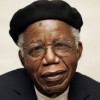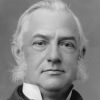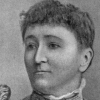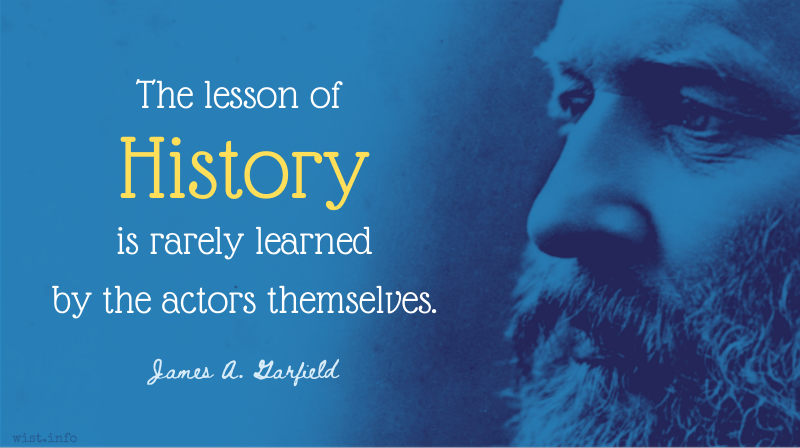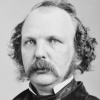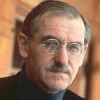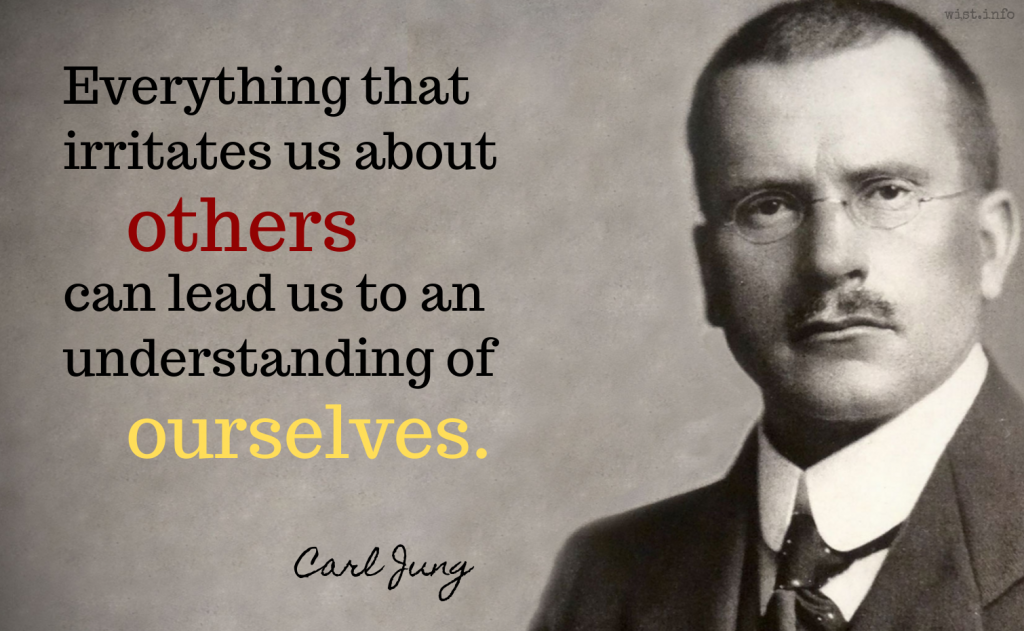That’s what history is. It’s a conversation between the past and the present.
Lewis H. Lapham (b. 1935) American writer and editor
“The Art of Editing No. 4,” The Paris Review (Summer 2019)
(Source)
Quotations about:
perspective
Note not all quotations have been tagged, so Search may find additional quotes on this topic.
It can be very dangerous to see things from somebody else’s point of view without the proper training.
Why do you go away? So that you can come back. So that you can see the place you came from with new eyes and extra colors. And the people there see you differently, too. Coming back to where you started is not the same as never leaving.
We have a tendency to condemn people who are different from us, to define their sins as paramount and our own sinfulness as being insignificant.
Jimmy Carter (b. 1924) American politician, US President (1977-1981), Nobel laureate [James Earl Carter, Jr.]
“A Statesman And a Man Of Faith,” interview by Don Lattin, San Francisco Chronicle (12 Jan 1997)
(Source)
Treason is merely a question of dates.
Charles Maurice, Prince de Talleyrand-Périgord (1754-1838) French statesman
Comment to Tsar Alexander (1815)
(Source)
Variant: "Treason is merely a matter of dates."
Both versions of the line are quoted in different biographies of Talleyrand, apparently derived from a passage in his Memoirs (ed. Albert de Broglie, tr. De Beaufort (1891)). He relates while at the Congress of Vienna (1814-15), Tsar Alexander referred to Saxony as "Those who betrayed the cause of Europe" for joining with Napoleon, to which Talleyrand replied (mindful that Alexander had at times been allied with Napoleon), "Sire, that is a question of dates."
In the movie Die Hard 2 (1990), the quote is misattributed to Cardinal Richelieu in Alexandre Dumas, The Three Musketeers (1844). Variants on the line actually have been used in movie editions of Dumas' The Count of Monte Cristo (but not in the actual book).
There is that great proverb — that until the lions have their own historians, the history of the hunt will always glorify the hunter.
Chinua Achebe (1930-2013) Nigerian novelist, poet, professor, critic [Albert Chinualumogu Achebe]
Interview by Jerome Brooks, “The Art of Fiction,” #139, The Paris Review (Winter 1994)
(Source)
Referring to an African proverb, usually rendered, "Until the lion learns to write, every story will glorify the hunter."
He who knows one, knows none.
Max Müller (1823-1900) German-British philologist, Orientalist, religious studies founder
“The Science of Religion,” Lecture 1, Royal Institution (19 Feb 1870), Lectures on the Science of Religion (1872)
(Source)
Regarding religion, paraphrasing Goethe on language ("He who knows one language, knows none").
For thee — if this my deed seems foolishness,
The fool has caught the foolish in her folly.[σοὶ δ᾽ εἰ δοκῶ νῦν μῶρα δρῶσα τυγχάνειν,
σχεδόν τι μώρῳ μωρίαν ὀφλισκάνω.]Sophocles (496-406 BC) Greek tragic playwright
Antigone, l. 469ff [Antigone] (441 BC) [tr. Donaldson (1848)]
(Source)
Alt. trans.:
And if my present actions are foolish in your sight, it may be that it is a fool who accuses me of folly.
[tr. Jebb (1891)]
And if in this thou judgest me a fool,
Methinks the judge of folly's not acquit.
[tr. Storr (1859)]
This to thee may seem
Madness and folly; if it be, 'tis fit
I should act thus; it but resembles thee.
[tr. Werner (1892)]
But you! You think
I've been a fool? It takes a fool to think that.
[tr. Woodruff (2001)]
If you think I’m a mindless woman then perhaps it's a mindless man who recognises a mindless woman.
[tr. Theodoridis (2004)]
If you think what I’m doing now is stupid,
perhaps I’m being charged with foolishness
by someone who’s a fool.
[tr. Johnston (2005), ll. 531-33]
And if you think my acts are foolishness
the foolishness may be in a fool's eye.
[tr. Wyckoff]
To be unacquainted with what has passed in the world, before we came into it ourselves, is to be always children. For what is the age of a single mortal, unless it is connected, by the aid of History, with the times of our ancestors?
[Nescire autem quid ante quam natus sis acciderit, id est semper esse puerum. Quid enim est aetas hominis, nisi ea memoria rerum veterum cum superiorum aetate contexitur?]
Marcus Tullius Cicero (106-43 BC) Roman orator, statesman, philosopher
Brutus, ch. 34, sec. 120 (55 BC) [tr. Jones (1776)]
(Source)
The original Latin. Alt. trans.
- "For not to know what happened before one was born, is to be a boy all one s life. For what is the life of a man unless by a recollection of bygone transactions it is united to the times of his predecessors?" [tr. Yonge (1853)]
- "To be ignorant of what happened before you were born is to remain always a boy. For what is the lifetime of a man, unless it is connected with the lifetime of older men by the memory of earlier events?" [tr. Fox (2007)]
- "What is a generation, if it is not conjoined with the age of our predecessors by the memory of ancient things?" [tr. @sentantiq]
- "Not to know what happened before you were born is to be a child forever. For what is the time of a man, except it be interwoven with that memory of ancient things of a superior age?"
- "Not to know what happened before you were born is always to be a boy."
- "To be ignorant of the past is to be forever a child."
I am seeking to rescue the poor stockinger, the Luddite cropper, the “obsolete” hand-loom weaver, the “utopian” artisan, and even the deluded follower of Joanna Southcott, from the enormous condescension of posterity. Their crafts and traditions may have been dying. Their hostility to the new industrialism may have been backward-looking. Their communitarian ideals may have been fantasies. Their insurrectionary conspiracies may have been foolhardy. But they lived through these times of acute social disturbance, and we did not. Their aspirations were valid in terms of their own experience; and, if they were casualties of history, they remain, condemned in their own lives, as casualties.
E. P. Thompson (1924-1993) British historian, writer, activist [Edward Palmer Thompson]
The Making of the English Working Class, Preface (1963)
(Source)
One does not go to the theater to see life and nature; one goes to see the particular way in which life and nature happen to look to a cultivated, imaginative and entertaining man who happens, in turn, to be a playwright.
George Jean Nathan (1892-1958) American editor and critic
The Critic and the Drama, ch. 2 (1922)
(Source)
A critical, strong speech made by a man is “blunt” or “outspoken” or “pulls no punches.” A speech of similar force and candor made by a woman is “waspish,” “sarcastic,” or “cutting.” A man of strong opinions is defined as having “deep convictions.” A woman so constituted is merely “opinionated,” and always “aggressive.”
I have no faith in the sense of comforting beliefs which persuade me that all my troubles are blessings in disguise.
Rebecca West (1892-1983) British author, journalist, literary critic, travel writer [pseud. for Cicily Isabel Fairfield]
“Pleasure Be Your Guide,” The Nation, “Living Philosophies” series #10 (25 Feb 1939)
(Source)
Adapted into Clifton Fadiman, I Believe: The Personal Philosophies of Certain Eminent Men and Women of Our Time (1952)
One would expect people to remember the past and to imagine the future. But in fact, when discoursing or writing about history, they imagine it in terms of their own experience, and when trying to gauge the future they cite supposed analogies from the past: till, by a double process of repetition, they imagine the past and remember the future.
We are all more blind to what we have than to what we have not.
Audre Lorde (1934-1992) American writer, feminist, civil rights activist
“Notes from a Trip to Russia,” Sister Outsider (1984)
(Source)
The position which believers and unbelievers occupy with regard to their various forms of faith is very much the same all over the world. The difficulties which trouble us, have troubled the hearts and minds of men as far back as we can trace the beginnings of religious life. The great problems touching the relation of the Finite to the Infinite, of the human mind as the recipient, and of the Divine Spirit as the source of truth, are old problems indeed; and while watching their appearance in different countries, and their treatment under varying circumstances, we shall be able, I believe, to profit ourselves, both by the errors which others committed before us, and by the truth which they discovered. We shall know the rocks that threaten every religion in this changing and shifting world of ours, and having watched many a storm of religious controversy and many a shipwreck in distant seas, we shall face with greater calmness and prudence the troubled waters at home.
Max Müller (1823-1900) German-British philologist, Orientalist, religious studies founder
Chips from a German Workshop, Vol. 1, Preface (1866)
(Source)
A set of beliefs is at once a way of seeing the world more clearly while, at the same time, foreclosing an alternative vision.
Lillian Rubin (1924-2014) American writer, professor, psychotherapist, sociologist
Intimate Strangers: Men and Women Together (1983)
(Source)
Section reprinted as "The Sexual Dilemma" in Roberta Satow, Gender and Social Life (2000).
The lesson of History is rarely learned by the actors themselves.
James A. Garfield (1831-1881) US President (1881), lawyer, lay preacher, educator
Letter to Professor Demmon (16 Dec 1871)
(Source)
Beauty is no quality in things themselves: It exists merely in the mind which contemplates them; and each mind perceives a different beauty. One person may even perceive deformity, where another is sensible of beauty; and every individual ought to acquiesce in his own sentiment, without pretending to regulate those of others.
David Hume (1711-1776) Scottish philosopher, economist, historian, empiricist
“Of the Standard of Taste” (1739)
(Source)
We are too prone to judge ourselves by our ideals and other people by their acts. All of us are entitled to be judged by both. We must recognize the dignity of our neighbors and before we act must place ourselves in the place of our neighbor and judge our acts through his eyes.
Dwight Morrow (1873-1931) American businessman, diplomat, politician
Quoted in “Close Mexican Ties Urged by Morrow,” New York Times (17 May 1930)
(Source)
The first sentence of this comment by Morrow was popularized in a biography of him, Harold Nicolson, Dwight Morrow (1935). Nicolson is, in turn, often erroneously credited with the quote.
Nicolson noted it was frequently used by Morrow ("'Remember,' he would often repeat, 'that we are all inclined to judge ourselves by our ideals; others by their acts.'"). He also recounts a variant, "All nations are prone to judge themselves by the loftiness of their own purposes, and to judge others nations by their failure to attain their high purposes."
More discussion of this quotation (and its predecessors) can be found here. Compare also to a related sentiment by Longfellow.
Behold the hippopotamus!
We laugh at how he looks to us,
And yet in moments dank and grim,
I wonder how we look to him.
Objects close to the eye shut out much larger objects on the horizon; and splendors born only of the earth eclipse the stars. So a man sometimes covers up the entire disk of eternity with a dollar, and quenches transcendent glories with a little shining dust.
I don’t think we injye other people’s suffin’, Hinnissy. It isn’t acshally injyement. But we feel betther f’r it.
[I don’t think we enjoy other people’s suffering, Hennessy. It isn’t actually enjoyment. But we feel better for it.]
Finley Peter Dunne (1867-1936) American humorist and journalist
Observations by Mr. Dooley, “Enjoyment” (1902)
(Source)
Why do you see the speck in your neighbor’s eye, but do not notice the log in your own eye? Or how can you say to your neighbor, “Let me take the speck out of your eye,” while the log is in your own eye? You hypocrite, first take the log out of your own eye, and then you will see clearly to take the speck out of your neighbor’s eye.
The Bible (The New Testament) (AD 1st - 2nd C) Christian sacred scripture
Matthew 7:3-5 [NRSV]
(Source)
Alt. trans.:
- [KJV] "And why beholdest thou the mote that is in thy brother's eye, but considerest not the beam that is in thine own eye? Or how wilt thou say to thy brother, Let me pull out the mote out of thine eye; and, behold, a beam is in thine own eye? Thou hypocrite, first cast out the beam out of thine own eye; and then shalt thou see clearly to cast out the mote out of thy brother's eye."
- [GNT] "Why, then, do you look at the speck in your brother's eye and pay no attention to the log in your own eye? How dare you say to your brother, 'Please, let me take that speck out of your eye,' when you have a log in your own eye? You hypocrite! First take the log out of your own eye, and then you will be able to see clearly to take the speck out of your brother's eye.
Here’s to the crazy ones — the misfits, the rebels, the troublemakers, the round pegs in the square holes, the ones who see things differently. They’re not fond of rules, and they have no respect for the status quo. You can quote them, disagree with them, glorify or vilify them. About the only thing you can’t do is ignore them, because they change things, they push the human race forward. While some may see them as the crazy ones, we see genius, because the people who are crazy enough to think that they can change the world are the ones who do.
Steve Jobs (1955-2011) American computer inventor, entrepreneur
“To the Crazy Ones,” TV advertisement (1997)
(Source)
Often cited as a quotation from Steve Jobs, this was an Apple advertisement developed by Chiat/Day under the direction of Jobs after his return to the company in 1997, under the campaign "Think Different." The ad and its text was created by Chiat/Day talent like Craig Tanimoto, Rob Siltanen, and Ken Segall. (For more information on the ad's development, see Siltanen's article.)
Jobs did narrate the text at least once, but the original 1997 ad was voiced by Richard Dreyfuss.
Note: nearly all transcripts say, "But the only thing you can't do ..." while the word voiced is "About the only thing you can't do ...."
Nothing is more dangerous than an idea when it is the only one we have.
[Rien n’est plus dangereux qu’une idée, quand on n’a qu’une idée.]
Alain (1868-1951) French philosopher, journalist, pacifist [pseud. for Émile-Auguste Chartier]
Propos sur la religion, #74 (1938)
Alt. trans.: "Nothing is more dangerous than an idea, when you have only one idea."
Sometimes also quoted as "Rien n'est plus dangereux qu'une idée lorsque c'est la seule idée que vous avez."
Chuck Palahniuk (b. 1962) American novelist and freelance journalist
Invisible Monsters, ch. 1 (1999)
(Source)
It is not the least of a martyr’s scourges to be canonized by the persons who burned him.
Murray Kempton (1917-1997) American journalist.
Part of Our Time: Some Ruins & Monuments of the Thirties, ch. 2 (1955)
(Source)
To return to the matter of the persona, I repeat that one cannot wholly eliminate oneself for a second, and also sufficient, reason: any fiction (and surely poetry too?) is bound to be transposed autobiography. (True, it may be this at so many removes as to defeat recognition.) I can, and indeed if i would not I still must, relate any and every story I have written to something that happened to me in my own life. But here I am speaking of happenings in a broad sense — to behold and react, is where I am concerned a happening; speculations, unaccountable stirs of interest, longings, attractions, apprehensions without knowable cause — these are happenings, also.
She’s adorn’d
Amply that in her husband’s eye looks lovely —
The truest mirror that an honest wife
Can see her beauty in!
Everything is funnier in retrospect, funnier and prettier and cooler. You can laugh at anything from far enough away.
Chuck Palahniuk (b. 1962) American novelist and freelance journalist
Stranger Than Fiction: True Stories, “Consolation Prizes” (2004)
(Source)
Thare would be a grate supply ov wit and humor in this world, if we would only giv others the same credit for being witty that we claim for ourselfs.
[There would be a great supply of wit and humor in this world, if we would only give others the same credit for being witty that we claim for ourselves.]
Josh Billings (1818-1885) American humorist, aphorist [pseud. of Henry Wheeler Shaw]
Everybody’s Friend, Or; Josh Billing’s Encyclopedia and Proverbial Philosophy of Wit and Humor, “Mollassis Kandy” (1874)
(Source)
The most that experience seems tew do for us, is tew sho us, what kussid phools every boddy but we, hav made of themselfs.
[The most that experience seems to do for us is to show us what cussed fools everybody but we have made of themselves.]
Josh Billings (1818-1885) American humorist, aphorist [pseud. of Henry Wheeler Shaw]
Everybody’s Friend, Or; Josh Billing’s Encyclopedia and Proverbial Philosophy of Wit and Humor, “Mollassis Kandy” (1874)
(Source)
A rich man cannot enjoy a sound mind nor a sound body without exercise and abstinence; and yet these are truly the worst ingredients of poverty.
Henry Home, Lord Kames (1696-1782) Scottish jurist, agriculturalist, philosopher, writer
Introduction to the Art of Thinking, ch. 2 (1761)
(Source)
And so these men of Indostan
Disputed loud and long,
Each in his own opinion
Exceeding stiff and strong.
Though each was partly in the right
And all were in the wrong!So oft in theologic wars,
The disputants, I ween,
Rail on in utter ignorance
Of what each other mean,
And prate about an Elephant
Not one of them has seen!John Godfrey Saxe (1816-1887) American poet and satirist
“The Blind Men and the Elephant,” st. 8 and “Moral” (c. 1861; publ. 1872)
(Source)
Saxe introduced the parable, which dates back to India (c. 500 BC) to American audiences. He wrote the poem originally against what he felt was extremism on both sides that led the the American Civil War.
If you said to a bunch of average people two hundred years ago “Would you be happy in a world where medical care is widely available, houses are clean, the world’s music and sights and foods can be brought into your home at small cost, travelling even 100 miles is easy, childbirth is generally not fatal to mother or child, you don’t have to die of dental abcesses and you don’t have to do what the squire tells you” they’d think you were talking about the New Jerusalem and say ‘yes’.
Terry Pratchett (1948-2015) English author
(Attributed)
Usually cited to alt.fan.pratchett, but not found in the repository.
Things are beautiful if you love them.
Jean Anouilh (1910-1987) French dramatist
Mademoiselle Colombe, Act 2, sc. 2 (1950) [tr. Kronenberger (1954)]
(Source)
To make us feel small in the right way is a function of art; men can only make us feel small in the wrong way.
E. M. Forster (1879-1970) English novelist, essayist, critic, librettist [Edward Morgan Forster]
“A Book That Influenced Me,” Two Cheers for Democracy (1951)
(Source)
There is no “True.” There are only ways of perceiving.
Gustave Flaubert (1821-1880) French writer, novelist
Letter to Léon Hennique (3 Feb 1880) [tr. Steegmuller (1982)]
(Source)
But I aint so sho that ere a man has the right to say what is crazy and what aint. It’s like there was a fellow in every man that’s done a-past the sanity or the insanity, that watches the sane and insane doings of that man with the same horror and the same astonishment.
Keep cool: it will be all one a hundred years hence.
Ralph Waldo Emerson (1803-1882) American essayist, lecturer, poet
“Montaigne; or, The Skeptic,” Representative Men, Lecture 4 (1850)
(Source)
When I was a child, I spoke like a child, I thought like a child, I reasoned like a child. When I became an adult, I put an end to childish ways.
The Bible (The New Testament) (AD 1st - 2nd C) Christian sacred scripture
1 Corinthians 13:11 [NRSV (1989)]
(Source)
Alternate translations:
When I was a child, I spake as a child, I understood as a child, I thought as a child: but when I became a man, I put away childish things.
[KJV (1611)]
When I was a child, I used to talk like a child, and think like a child, and argue like a child, but now I am a man, all childish ways are put behind me.
[Jerusalem (1966)]
When I was a child, my speech, feelings, and thinking were all those of a child; now that I am an adult, I have no more use for childish ways.
[GNT (1976)]
In the affluent society no sharp distinction can be made between luxuries and necessaries.
John Kenneth Galbraith (1908-2006) Canadian-American economist, diplomat, author
The Affluent Society, ch. 21, sec. 4 (1998, 4th ed.)
(Source)
On sales taxes. Sometimes quoted (from other editions?) as "useful distinction."
There are few of us who are not protected from the keenest pain by our inability to see what it is that we have done, what we are suffering, and what we truly are. Let us be grateful to the mirror for revealing to us our appearances only.
Samuel Butler (1835-1902) English novelist, satirist, scholar
Erewhon, ch. 3 “Up the River” (1872)
(Source)
Things seem to tend downward, to justify despondency, to promote rogues, to defeat the just; and by knaves as well as by martyrs the just cause is carried forward. Although knaves win in every political struggle, although society seems to be delivered over from the hands of one set of criminals into the hands of another set of criminals, as fast as the government is changed, and the march of civilization is a train of felonies, yet, general ends are somehow answered.
Ralph Waldo Emerson (1803-1882) American essayist, lecturer, poet
“Montaigne; or, The Skeptic,” Representative Men, Lecture 4 (1850)
(Source)
Everything that irritates us about others can lead us to an understanding of ourselves.
Carl Jung (1875-1961) Swiss psychologist
Memories, Dreams, Reflections [Erinnerungen, Träume, Gedanken], ch. 9 “Travels,” sec. 2 (1961; 1973 ed.) [with Aniela Jaffé] [tr. Winton/Winton (1963)]
(Source)







